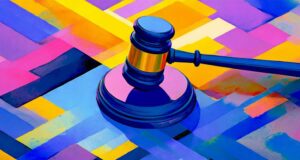Through a press release on July 11, 2024, U.S. Senators have introduced the COPIED Act, a bold legislative proposal aimed at ensuring transparency and accountability in the rapidly evolving field of artificial intelligence. Senators Cantwell, Blackburn, and Heinrich introduced the COPIED Act (Content Origin Protection and Integrity from Edited and Deepfaked Media Act of 2024), to enhance transparency and accountability in the usage of AI-generated content. This landmark legislation is a significant step towards addressing the complex challenges that arise from the increasing integration of AI in content creation and distribution.
Overview of the COPIED Act (Bill)
The COPIED Act mandates the inclusion of “content provenance information” for any digital content significantly modified or created using AI tools. This information must be machine-readable and secured against tampering or removal, ensuring the integrity and traceability of AI-generated content.
Key Provisions:
- Guidelines and Standards: The Act directs the National Institute of Standards and Technology (NIST), in collaboration with the U.S. Patent and Trademark Office (USPTO) and the U.S. Copyright Office, to develop guidelines for detecting synthetic content, watermarking, and content provenance. NIST will also establish grand challenges to advance technologies that label and detect synthetic content and conduct a public education campaign on synthetic media and deepfakes.
- Content Provenance Information: Developers and deployers of AI systems that generate synthetic content must provide users with the option to attach content provenance information within two years. This requirement aims to maintain the integrity and traceability of digital content, ensuring that creators’ works are properly credited and protected.
- Prohibition of Unauthorized Use: The Act prohibits the use of copyrighted digital content to train AI systems or create synthetic content without explicit consent and adherence to terms of use, including compensation. It also forbids tampering with or removing content provenance information, with limited exceptions for security research.
Enforcement Mechanisms
The COPIED Act outlines robust enforcement measures to ensure compliance:
- Federal Trade Commission (FTC) Oversight: The FTC is empowered to enforce the act, treating violations as unfair or deceptive acts in commerce.
- State Attorney Generals: State attorney generals can bring civil actions for violations, provided they notify the FTC beforehand. The FTC may intervene in these actions.
- Private Right of Action: Individuals or entities owning content with attached provenance information can bring civil suits against violators, seeking declaratory or injunctive relief, compensatory damages, and litigation expenses.
Implications for the AI and Digital Content Ecosystem
The COPIED Act represents a comprehensive approach to safeguarding the rights of content creators and users in the digital age. By mandating provenance information and securing its integrity, the act aims to foster trust and accountability in the AI content creation space. This legislation is expected to impact a wide range of stakeholders, including AI developers, digital content platforms, and end-users, ensuring that the benefits of AI advancements are accompanied by necessary protections against misuse and deception.

What’s Next
As AI continues to transform the landscape of digital content creation, the COPIED Act of 2024 stands as a crucial legal framework to balance innovation with ethical and transparent practices. The act not only protects creators but also empowers users by providing them with verifiable information about the content they interact with, ultimately fostering a more trustworthy and accountable digital environment.
For a more detailed breakdown of the COPIED Act and its implications, visit the official legislative documentation here, and summary of the act here.


